For years, traditional grains like millets had been pushed aside in favour of more commercial crops, leaving farmers with diminishing incomes and an uncertain future.
One such individual affected by this transition was Arvind Kumar, an organic farmer from Uttar Pradesh, whose fortunes—like those of many others—had been on the decline.
“I sold my millet crops in tiny amounts, just enough to scrape by and keep the household afloat. There was no certainty, payments were delayed, prices were low, and hope was fading,” he shares.
But all that began to change when Arvind met Palak Arora, the founder of ‘SatGuru Superfoods’ and its flagship brand ‘Millium’, a name that honours millets, one of the oldest staple grains known to mankind.
Today, her millet-based food business generates Rs 3 lakh every month, combining traditional wisdom with modern science, while uplifting rural farmers who had almost abandoned millet cultivation altogether.
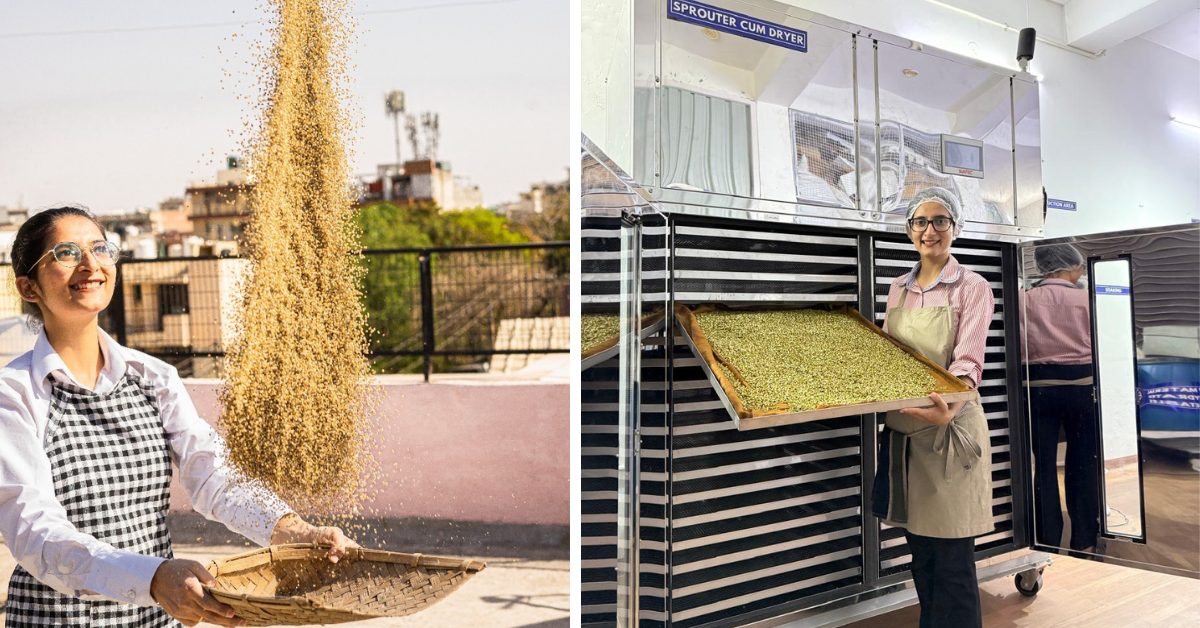
Her journey did not start in a high-tech lab or bustling startup incubator. Instead, it took root during the still and uncertain days of the 2020 COVID-19 lockdown, when she was in her third year at the National Institute of Food Technology Entrepreneurship and Management (NIFTEM).
It began as a personal search for immunity-boosting and nutrient-dense food, but evolved into a mission to improve the food system and rural livelihoods.
Family, food, and fight drive a personal mission
“I was looking online for easy-to-cook and healthy foods that could boost immunity. What I found were raw millets or coarse flour, but no ready-to-cook or ready-to-eat products. Everyone knew millets were nutritious, but no one had made them convenient,” Palak tells The Better India.
She was well aware, owing to her rigorous training in food technology and certification as an FSSC 22000 lead auditor, that millets require specialised processing.
Unlike wheat, which is commonly milled into atta flour ready for instant use, millets require soaking, sprouting, drying, or roasting to break down anti-nutrients and unlock their nutritional potential. This step was almost completely missing from the Indian market, leaving consumers with difficult-to-use raw grains or unprocessed flours.
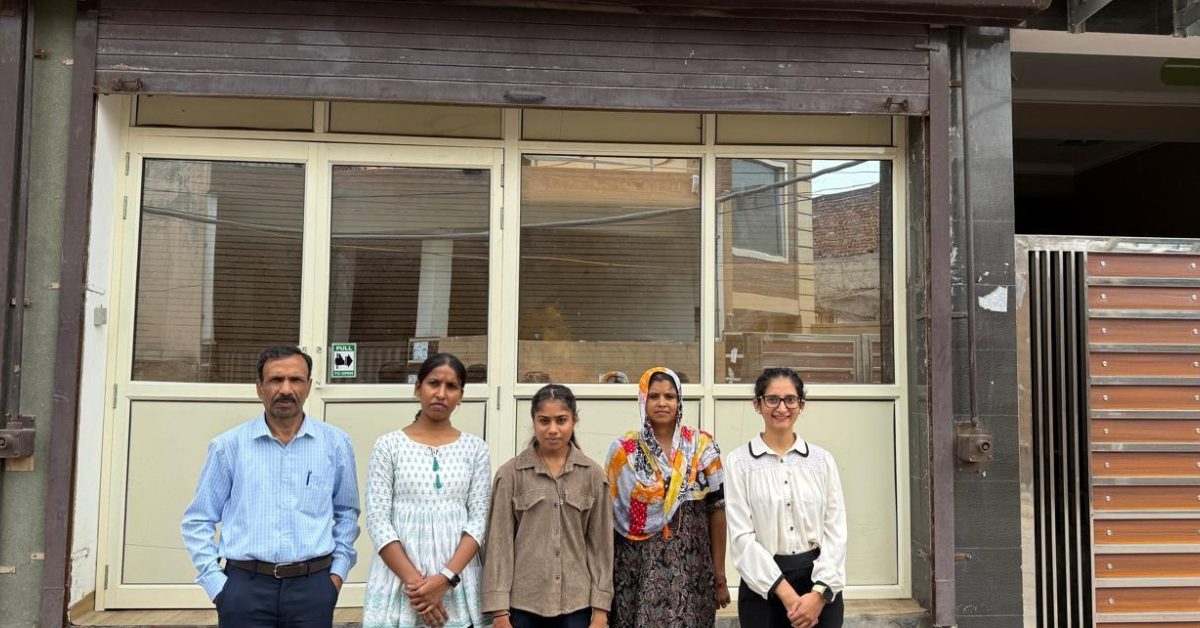
Adding urgency to her quest was a personal challenge. Her father was battling kidney failure, a life-altering diagnosis that called for strict nutritional vigilance. Doctors revealed that the underlying cause was a prolonged deficiency of essential micronutrients, a realisation that shifted the family’s perspective on food and health forever.
“Seeing him struggle with illness made me more determined. I wanted to create food that was not only nutritious but easy and quick to prepare, so families like mine could eat well despite busy lives or health issues,” explains the 26-year-old entrepreneur.
Ancient grains meet modern science to reinvent tradition
With the college lab shuttered during the pandemic, she converted her family’s terrace in Faridabad into a makeshift research and development kitchen.
To recreate key food processing techniques at home, she invested in basic equipment like solar dryers for gently removing moisture without compromising nutrients, blenders for mixing ingredients evenly, and pulverisers to finely grind sprouted millets and lentils into ready-to-cook mixes.
Her mother became her first collaborator and most trusted taste tester, helping refine recipes with care and precision. “I always wanted to make something I would eat myself. I dislike spending hours cooking, so I aimed for healthy food that could be ready in 10 minutes or less,” she says.
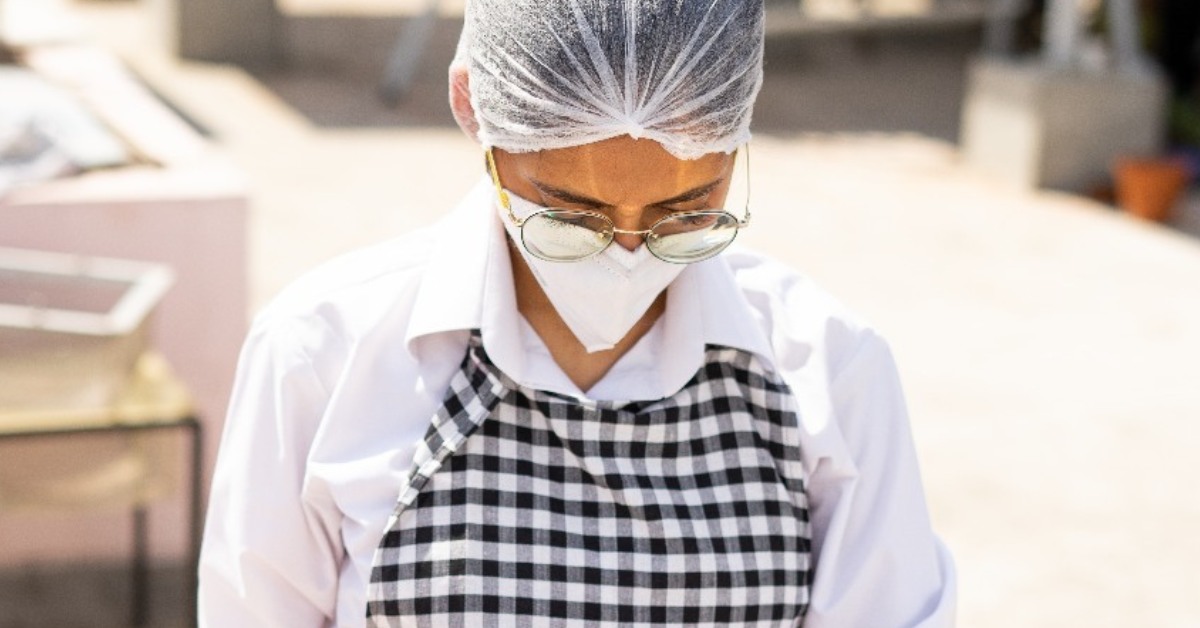
Her earliest products were sprouted millet porridge, vegetable-loaded idlis, and Punjabi-style cheela (savoury pancakes).
Each recipe underwent over a hundred tastings with friends and family, refined repeatedly to balance nutrition, taste, and convenience. With no initial funding, Palak’s parents became her biggest supporters, both financially and emotionally.
“My father encouraged me to give my best and never to stop pursuing my vision, no matter how much others doubted it. His belief in me became my greatest strength and kept me going through every challenge,” she explains.
Fast, fresh, and healthy meals reinvent millet
In September 2021, she formally registered SatGuru Superfoods, and by June 2022, she successfully launched Millium, while managing the demanding responsibilities of her role in Danone’s global R&D division, a position she held until July 2022 before dedicating herself fully to her venture.
The brand’s name, derived from the Latin word for millets, is a tribute to the grains’ legacy. The tagline, “Healthy Bhi Jaldi Bhi” (Healthy and Quick), captures the entrepreneur’s vision of food that fits modern and hectic lifestyles without compromising health.
The brand’s uniqueness emerges from the fusion of age-old practices and modern scientific rigour, guaranteeing every product delivers both nutrition and flavour. Initially, she relied on solar dryers to harness clean energy for drying the millet grains, but as production scaled up, she adopted industrial drying machines to maintain consistency and efficiency.
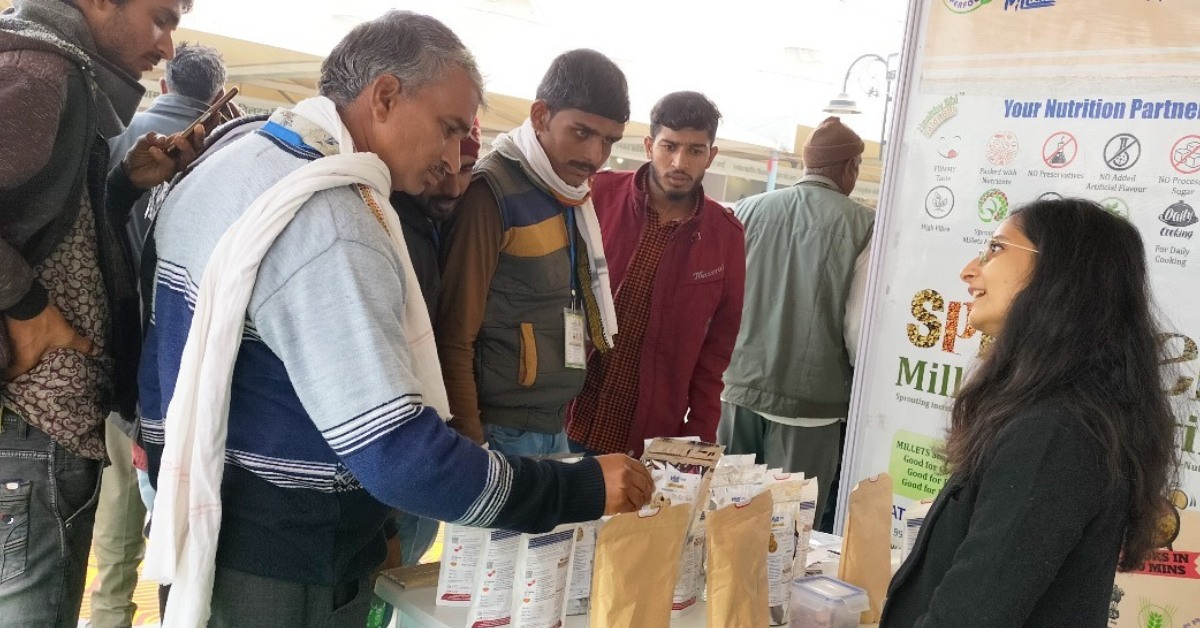
Mastering the craft behind perfect millets
The manufacturing of each product starts with the farmer’s grain, which arrives at the production facility where it is manually soaked, sprouted in custom chambers, and then dried either in industrial dryers.
Some products are roasted to bring out unique flavours before pulverising and blending with lentils. For example, the Punjabi cheela mix includes sprouted ragi, jowar, moong dal, and moth dal, all packed only after rigorous quality control.
“Millets are naturally rich in fibre and essential micronutrients, while lentils provide the complementary protein profile; together, they form a well-balanced and nourishing meal in every ready-to-cook mix,” she explains.
The company conducts strict moisture analysis and microbial testing, guaranteeing safety and shelf stability without relying on preservatives or additives. All products are tested at Equinox Labs and certified by FSSAI, APEDA, MSME, and Startup India, underscoring the commitment to quality and transparency.
Since starting from a terrace kitchen, the operation has grown into a full-fledged manufacturing unit in Faridabad. As of 2025, the brand produces eight tonnes of ready-to-cook and 21 tonnes of ready-to-eat millet products monthly.
The product range now exceeds fifteen varieties, including offerings like ragi soup, millet noodles and pasta, millet poha, and pancake mixes. The price range, from Rs 55 for smaller packs to Rs 640 for larger bulk packs, makes Millium accessible to a broad consumer base.
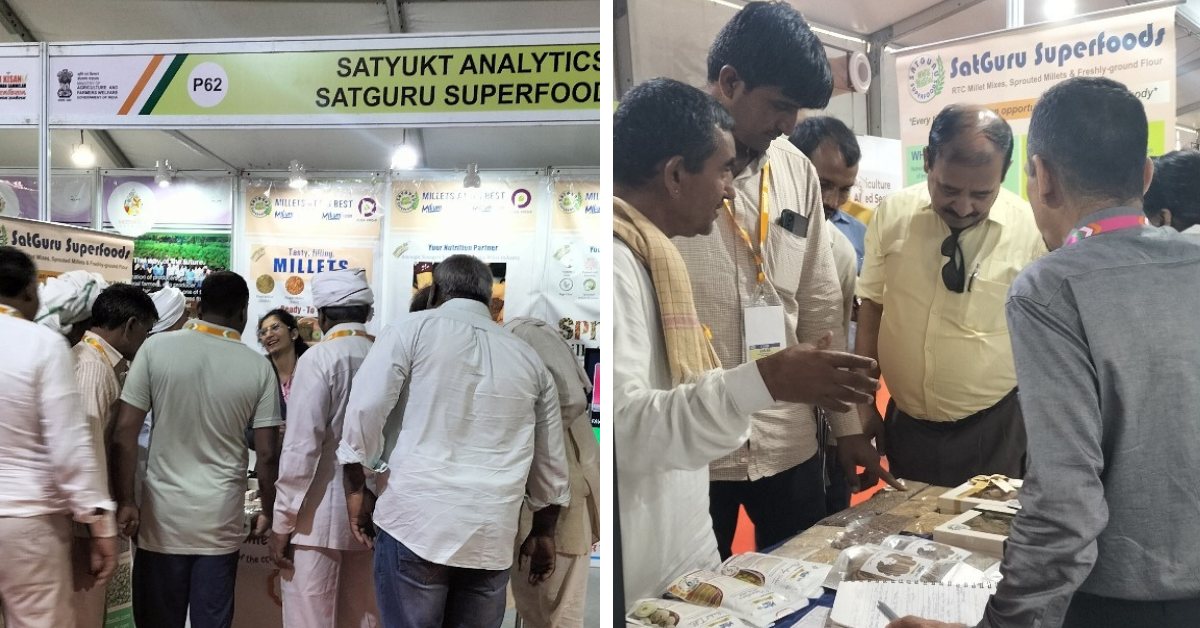
A millet revolution that delights every palate
The startup has struck a chord with consumers across the board. Poonam Chadha, a 49-year-old yoga instructor from Kota, first encountered Millium at an industrial fair and became a devoted fan.
“I had never seen sprouted millet products before. They are filling and great for digestion. The ragi soup and beetroot idlis are my favourites, they taste delicious and help with weight management too,” she shares. “I recommended the brand to all my students and family, and they have taken to the mixes just as much as I have.”
Similarly, Pankaj Mehra, a diabetic health consultant from Noida, discovered Millium at an FSSAI exhibition. “I love poha, but rice spikes my sugar levels. When I found jowar poha from Millium, I was thrilled. It tastes great, fits my diet, and I even send it to my daughter in the United States. The quality is well worth the price,” he remarks.
The company sells through diverse channels, such as directly to consumers via its website, in bulk to hotels, restaurants, and catering services (HoReCa), and through white-labelling and contract manufacturing agreements for brands seeking clean-label millet products without production overheads.
“Our goal is to weave healthy millets into the broader food ecosystem, wherever people want nutritious options,” Palak says.
Logistically, the startup has evolved from taking orders over WhatsApp to partnering with Shiprocket for pan-India delivery and Razorpay for secure payments.
Bulk orders rely on trusted freight services like Nitco Transport. “We are a bootstrap startup, and we have deliberately kept operations lean to stay true to our values and quality,” she adds.
Supporting local farmers with fair pay and promises
Perhaps the greatest impact has been on the farmers who grow these forgotten grains. Through collaborations forged at events such as the Millets Culinary Carnival, organised by the Indian Institute of Millets Research and the Ministry of Agriculture, the entrepreneur built direct links with millet growers.
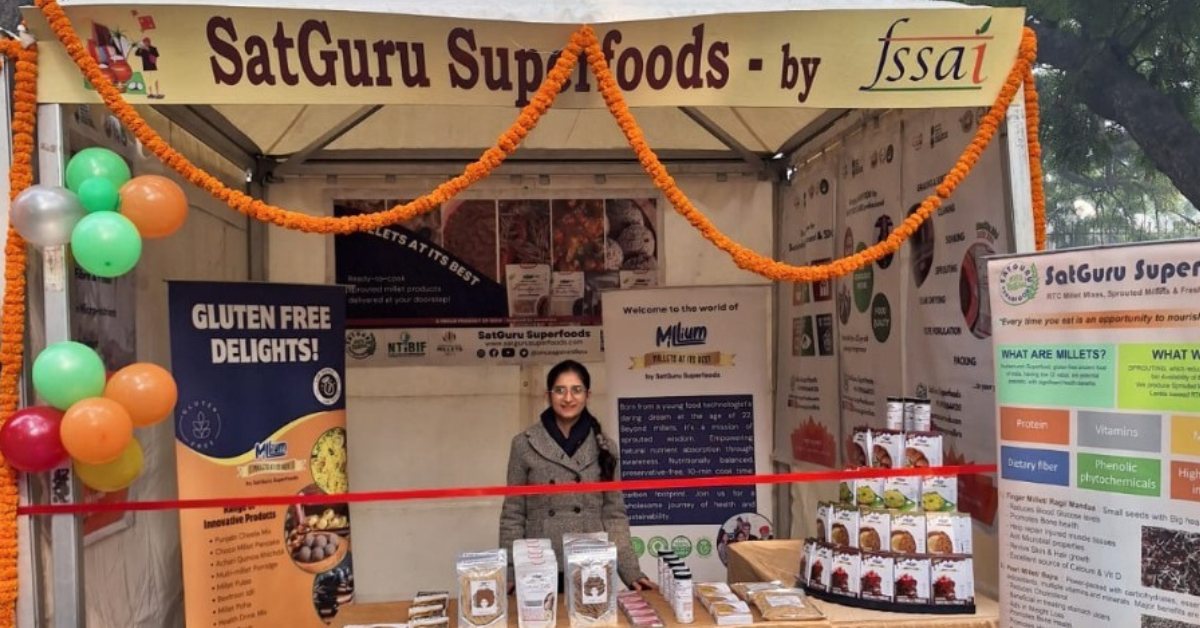
She sources ragi, jowar, and bajra straight from the farmers, paying fair prices and assuring prompt payments.
Arvind shares how his life has changed since partnering with the brand. “Working with the startup for the past few years has improved my living,” he says with pride.
“There is now a sense of stability and respect in what we do. Payments arrive on time, we get the correct prices for the produce, and we are no longer just struggling to survive. We can plan, invest in our farms, and support our families with confidence,” he adds.
“Our dream is to create opportunities at every stage, from farm to fork.”
The young entrepreneur sees millet revival not just as a business opportunity but as a step toward sustainable agriculture and food security.
“Millets are climate-resilient crops that require much less water than rice or wheat and improve soil fertility. By promoting millets, we are nourishing people while simultaneously restoring the health of our soil and ecosystems,” she emphasises.
Today, Palak leads a team of eight employees, with plans to expand and focus on hiring women from local communities.
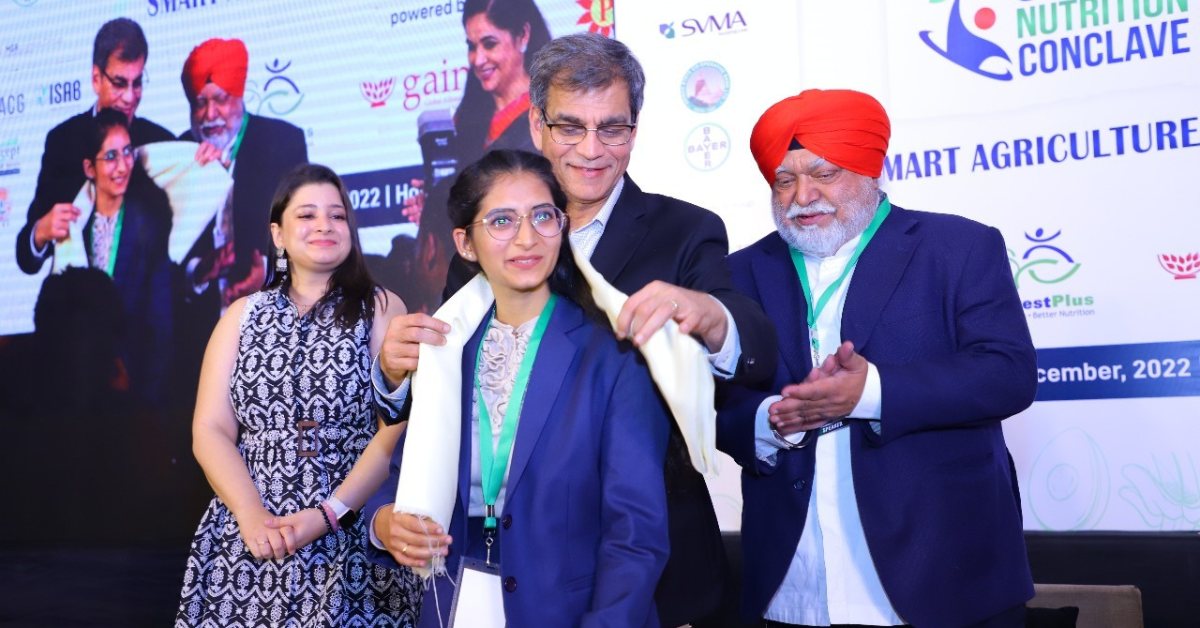
“Our dream is to create opportunities at every stage, from farm to fork, keeping our food local, honest, and nutritious. That is real success,” she says with conviction.
From a modest terrace experiment born out of a nationwide lockdown to a successful enterprise touching thousands of lives, Palak Arora’s story is a reminder of what can unfold when knowledge meets purpose.
By making millets more accessible, nutritious, and convenient, she is helping to upgrade diets, uplift local farmers, and rebuild the connection between what we eat and how it is grown.
As Arvind reflects with a gratitude in his voice, “There was a time when millets were just something we held on to, a last resort. But now, after receiving the recognition for our efforts, we grow them with pride, and with a future in mind.”
No comments:
Post a Comment